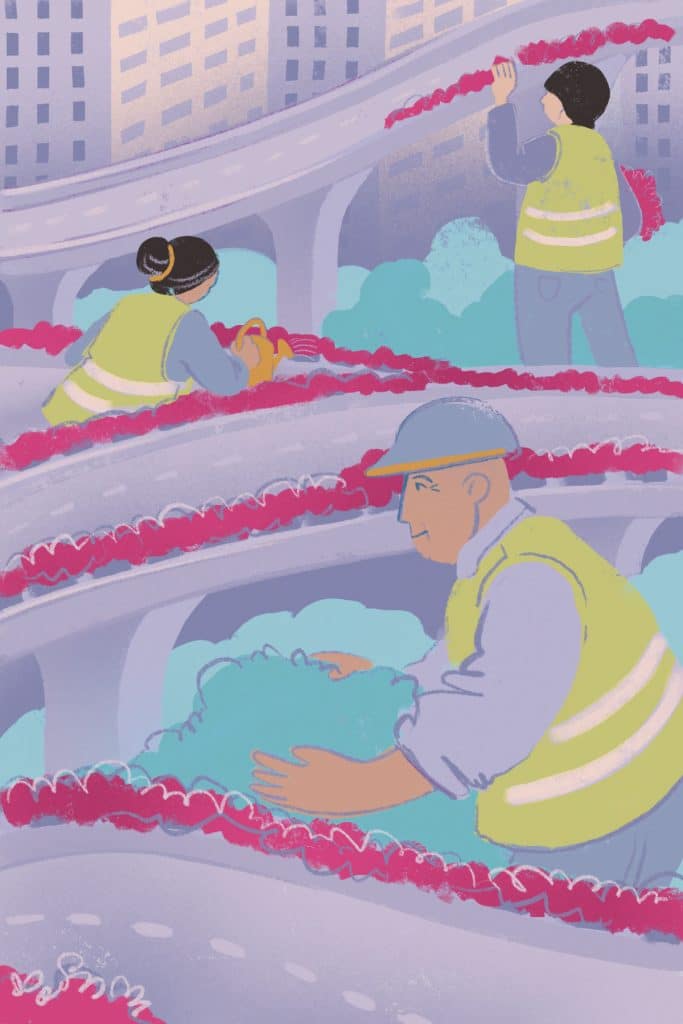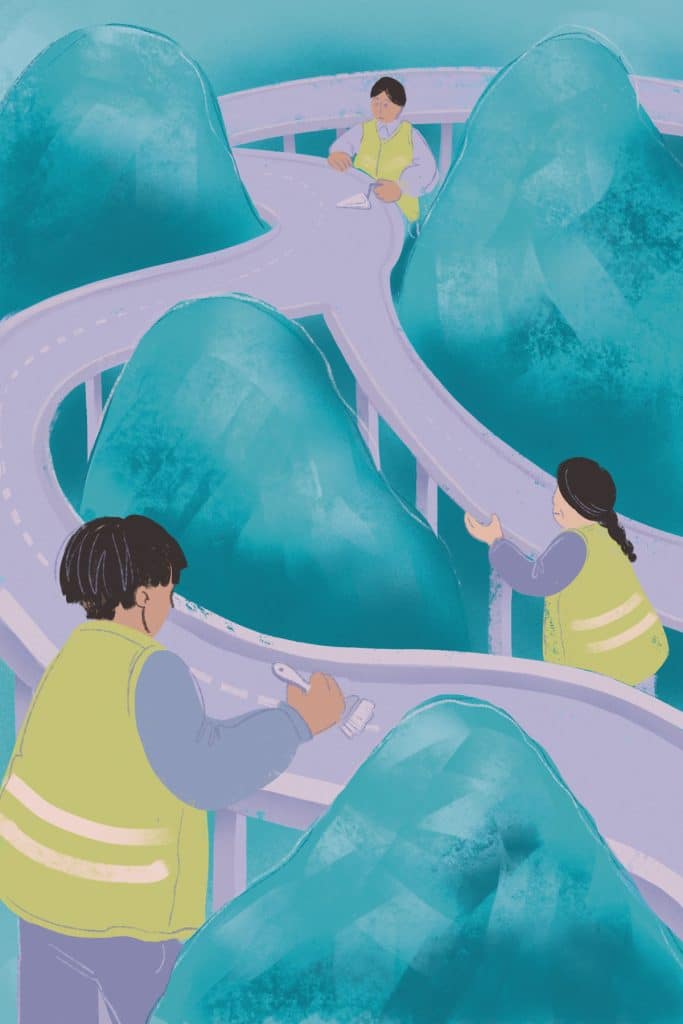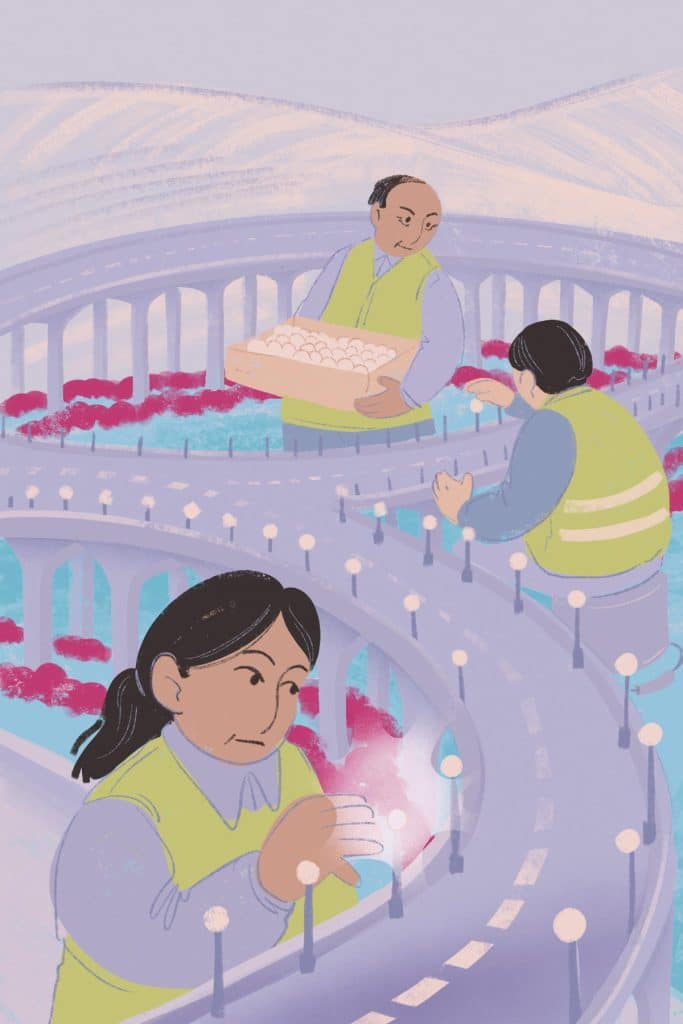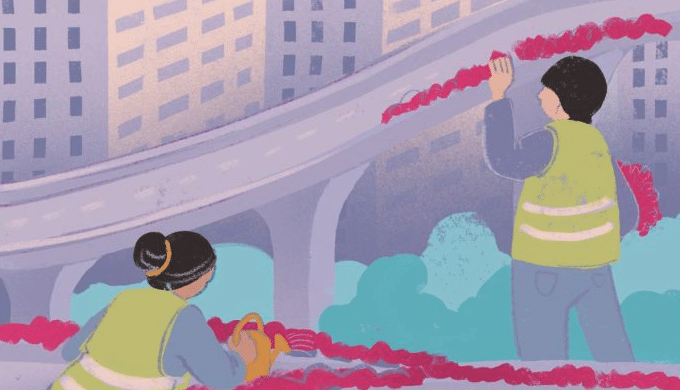Dear friends,
Greetings from the desk of Tricontinental: Institute for Social Research.

In 1957, Mao Zedong oversaw the publication of Socialist Upsurge in China’s Countryside, a three-volume collection of articles compiled by the Communist Party of China for the political education of the peasantry. The following year, selections from these volumes were republished in abridged and regional editions. One such edition included a report from the Anyang Regional Communist Party Committee’s Office for the Co-operative Movement with an introduction by Mao. The text, called ‘Who Says a Chicken Feather Can’t Fly up to Heaven?’, provides the title for this newsletter.
The chicken feather’s task is the task of socialism: to do what is considered by many to be impossible. The peasants of Anyang, Mao wrote, faced a choice between capitalism and socialism—although any socialist construction would inevitably bear traces of the capitalist system, as it must emerge out of existing forms of social production. ‘The poor want to remake their lives’, Mao wrote. ‘The old system is dying. A new system is being born. Chicken feathers really are flying up to heaven’. But Mao remained cautious. In the preface to another article, ‘They Insist on Taking the Road to Co-Operation’ (20 September 1955), he wrote:
Socialism is something new. A severe struggle must be waged against the old ways before socialism can be brought about. At a given time, a section of society is very stubborn and refuses to abandon its old ways. At another time, these same people may change their attitude and approve the new.

Ever since socialist forces have endeavoured to build a society free from the wretched outcomes of capitalism, they have had to contend with the challenge of transcending pre-existing social relations. The mechanisms to allocate resources under the capitalist system—such as the ‘profit incentive’—create the conditions for private control over social processes, which in turn generate enormous waste and inequality. When socialists have tried to imagine a society without the commodification of labour—one of the defining features of capitalism—they have found themselves replicating the wage system through experiments such as labour vouchers based on time worked. The transition away from commodified labour was not going to be abrupt or simple, but rather a protracted process of struggle to de-commodify key areas of social life (such as healthcare, education, and transportation) and to create mechanisms for people to acquire goods for personal use through non-wage means. When socialist forces took state power—as in the USSR after 1917 and China after 1949—they struggled to construct elementary forms of socialism while navigating the following conundrums:
- Limited systems for managing information. Socialist economies were vast and complex yet lacked adequate mechanisms to gather and process all the data required for the effective planning of a dynamic economy—a challenge that persists even today, despite powerful computing technologies.
- Fundamental uncertainty in decision-making. Planning authorities had to make budgetary and investment decisions under conditions of uncertainty, particularly as rapid advances in science and technology risked rendering major investments obsolete.
- Tension between long-term planning and short-term demand. Central plans often clashed with shifting consumer tastes, making it difficult to align long-term planned investment with the short-term tastes and whims of consumers.
- Conflicting political objectives. Economic goals were not always politically unified, and competing visions embedded in various plans often led to acute forms of bureaucratisation.
There is no formula for overcoming these and other problems faced by socialist projects once in state power. They must be solved experimentally—or, as the Chinese saying goes, by ‘crossing the river by feeling the stones’ (摸着石头过河). It is fitting, then, that the June 2025 edition of Wenhua Zongheng, published by Tricontinental: Institute for Social Research and focused on ‘Chinese Experiments in Socialist Modernisation’, opens with an essay by the Chinese writer Li Tuo titled ‘On the Experimental Nature of Socialism and the Complexity of China’s Reform and Opening Up’. One of the key insights of Li Tuo’s fascinating essay—which journeys from the Paris Commune to China’s reform and opening up—is that socialist revolutions, particularly in formerly colonised or economically underdeveloped countries, cannot transition directly to ‘complete socialism’ but must go through—quoting Lenin—‘a series of varied, imperfect, and concrete attempts to create this or that socialist state’.

I like the emphasis on ‘this or that socialist state’. There is no blueprint, but there are examples that need to be studied and histories that need to be properly digested. This is precisely what Li Tuo does in his essay, which he ends by marvelling at the creation of the high-speed rail system in China.
The next essay, written by Meng Jie and Zhang Zibin and titled ‘Industrial Policy with Chinese Characteristics: The Political Economy of China’s Intermediary Institutions’, examines China’s socialist modernisation with the diligence it demands—not just with awe but through close study. Every time I hear Meng Jie lecture or read his work on China’s market economy, I am deeply impressed by his insistence on building theory from active research in the very factories that produce the goods for modern China. Meng Jie and Zhang Zibin’s essay is no different, drawing on field research conducted in various factories along the high-speed rail supply chain.
What the authors find is that China’s high-speed rail production system was built within the state-owned sector but conceptualised within a ‘constructive market’ framework where ‘intra-governmental competition’ served as the engine of innovation. In other words, the Chinese state constructed a market that involved not just a profit-seeking private sector but also a product-oriented public sector with institutions competing to achieve national development goals. Finance for this entire system came from state-owned financial institutions that steered capital accumulation towards social use rather than merely a high rate of return. As Meng Jie and Zhang Zibin write, ‘The primary goal of state-owned capital is to implement the objectives of socialist production and fulfil the tasks set by the national development plans and strategies’. This essay is part of a broader effort by Meng Jie and his collaborators to try to understand the system of production relations and innovation that China has developed—a crucial area of enquiry as the country enters the era of ‘new quality productive forces’, a key concept in contemporary Chinese development policy.
One of the key elements of this latest issue of Wenhua Zongheng is to show that class struggle continues during the period of socialist construction. What this means is that various experiments are needed along the way to see what works and what doesn’t—both to develop the productive forces and to put in place more equitable social relations. In this process there has been a continued ideological struggle inside China as the capitalists seek ways to reproduce themselves. However, under China’s socialist system, capitalists are not permitted to organise themselves into a class with political power through ownership of media, financial systems, political parties, or other institutions. They cannot freely take their profits overseas or invest them wherever they like. There are several strategic dams in place—including capital controls—that regulate the flow of capital and prevent the Chinese capitalists from becoming oligarchic and refusing to invest in their country (a problem faced by so many governments in both the Global North and South, where oligarchs can take their capital wherever they want and even go on ‘strike’ by refusing to invest in infrastructure or industry). China’s capital remains within the country and in reach of a state-owned banking system that puts that capital to work within the parameters of the national development plan. Capitalists can operate in the country, but they cannot dominate the system and allow their profit-seeking behaviour to become paramount. In this way, the class struggle is tilted in favour of the people. This is what separates the socialist system in China from the capitalist systems in other countries.
In The German Ideology (1846), Marx and Engels wrote of the ‘muck of ages’ that needed to be set aside for a new world to be born. This act of setting aside is going to take a very long time.
The chicken feather certainly has not yet reached heaven, but it is not in hell either.
Warmly,
Vijay

